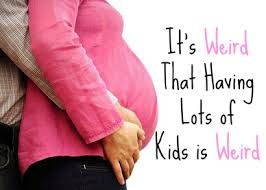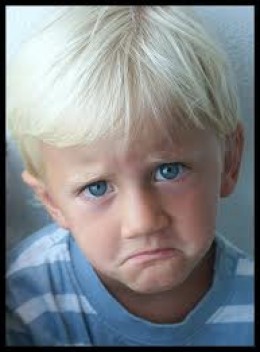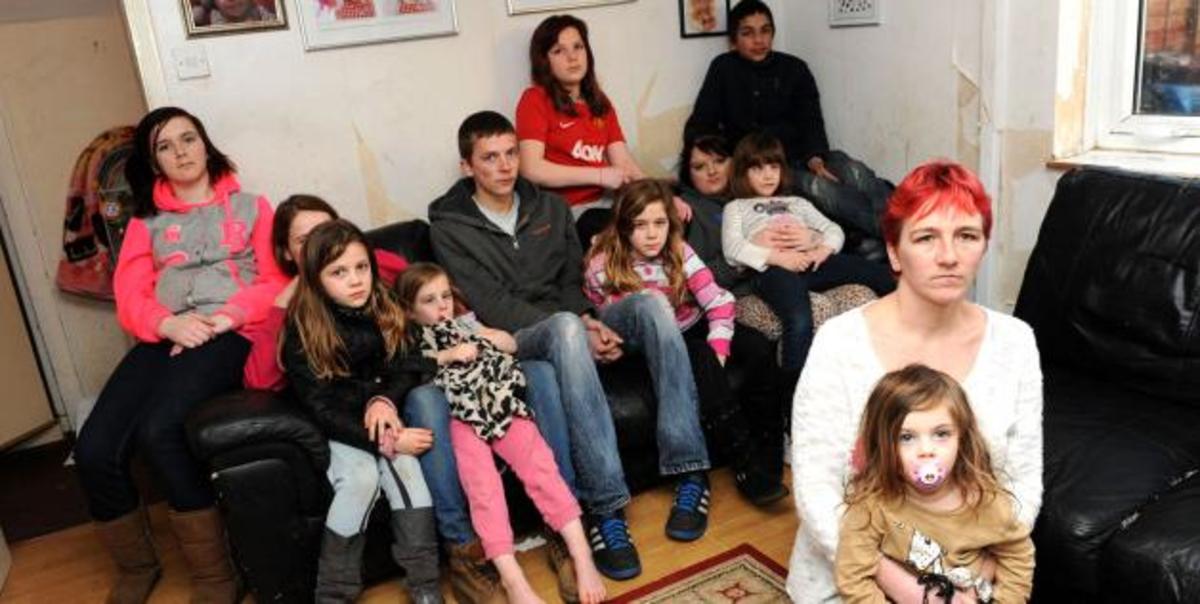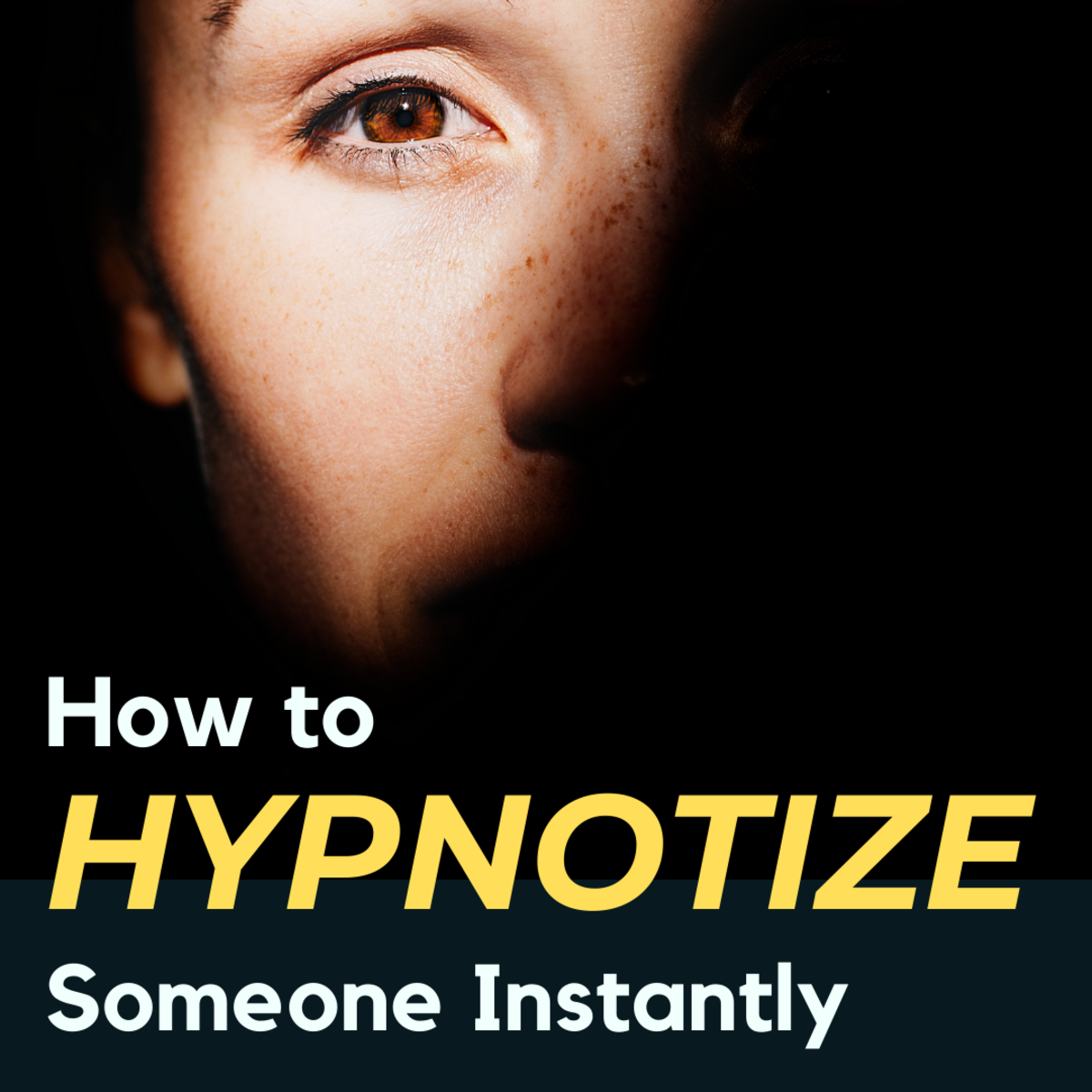What is This Nonsense "Fecundaphobia"? Really, Come On Now





Fecundophobia, What the Blazes
[Note: Large family is considered to be a household of 6 or more children.]
Remember the saying that the idle mind is the devil's workshop? The human mind is constantly in motion. If it does not think constructively, it thinks destructively. Many words are invented in the English language each day. Some words are intelligent while others are purely nonsensical to the verge of total and utter ludicrousness. Fecundophobia is such a word.
I was reading some extremely conservative religious articles and newsletters on the subject of fecundophobia. According to these articles and newsletters, mostly pro-life naturally-even anti- birth control, the definition of this concocted word is fear of fertile women and large families. These conservative religionists and pro-life pundits loudly proclaim that women now are fearful of becoming fruitful and multiplying.
These pundits and religonists assert that people today have small families because they hate children. They maintain that people who have large families LOVE children.They went further to state that this postmodern society is anti-family in addition to being anti-children. They then stated that society in general are prejudiced against large families. They assert that people from large families are the ones who really value family.
They proclaim that the postmodern culture of small families is a culture of death and self-indulgence. They are of the school that large families are more wholesome and enriching than small families. They maintain that small family culture view children as burdens or in the least to be problematic pests. They argue that large family culture is more conducive and welcome to children. They assert that in this postmodern society, many women view pregnancy as a disease that they either wish to avoid or in their estimation, prevent by unnatural means.
They further add that large families are under attack each day. They maintain that such families instead of being respected and emulated for being true representatives of what a family should be, they are oftentimes derided and considered to be anomalies. They claim that families face insurmountable prejudices in this small family culture. They contend that large families are the most criticized of all families. They state that mothers of large families are consistently verbally attacked by people because of their lifestyle choice.








Fear of & Prejudice Against..........Large Famililes?
Many mothers of large families staunchly maintain they are have been treated differentially because they have a lot of children. Some have become virulent in maintaining that other people are intrusive in their lives. They take such umbrage at people even asking how many children they have. They become even more defensive when people look at them and their families. They contend that how many children they have is their business. They state that they are the victims of prejudice from those who have smaller families or no children at all.
The average person neither fear nor are prejudiced against people from large families. That is a total fallacy. Those who critique large families do so with good reason. Children from large families have less individualized parental time and attendance than their counterparts from small families. As a result of low parental involvement, children from large families have to fend for themselves early in life. They have to learn to take care of themselves if they are going to survive, even thrive in the large family environment. In large family, children either swim or sink.
It is commonplace in large families for children to raise themselves and each other. Oldest children, particularly daughters, in large families have to parent younger siblings thus forfeiting their normative childhood and adolescent years. There was a 2004 newspaper article that stated that parents of 10 children were cited on child abuse charges for forcing their oldest daughter to assume full parenting duties of her younger siblings. In the Duggar household, it is the older daughters who parent the younger siblings, not the parents.
In addition to these negative components, there is a correlation between large families and poverty. The Joseph Rowntree Foundation stated that there were higher incidents of poverty in families where there are 5 children or more. Children in large families, as a result of being poor, barely have the necessities, let alone anything else.
Many children from large families have to work after-school and weekend jobs just to purchase things that other children normally have. Many children from large families oftentimes have to discontinue their education in order to work in order to supplement their meager family income. Children from large families have to consume inferior grade food because more nutritious food is more expensive. It is likely that they receive poor dental and medical care because the cost of health insurance is beyond the purview of the average large family.
A woman's body can be irreparably damaged as a result of numerous pregnancies. According to a study by the University of Utah, repeated pregnancies damages a woman's health and reproductive system, often leading to ill health and possibly younger death. Large families creates more stress both socioeconomically and psychologically.
Parents are forever wondering how they are going to make ends meet and/or how to support a large number of children. Parenting is oftentimes daunting as it is impossible for parents to effective raise a large number of children alone, that is why oldest children are enlisted or not forced to assume full parenting duties. No, highly educated and logical people do not fear nor are prejudiced against the large family. They view the large family as unthinking, careless, and irresponsible on the part of the parents. They see the large family as detrimental and disadvantageous, especially for the children.



Who's PREJUDICED Against Whom
It is the cry from many mothers of large families that people are prejudiced against them because they have a lot of children. However, on several large family blogs, many mothers of large families are highly critical and dismissive of women who elect to have smaller families. They believe that having small families is not preordained. They believe that it was preordained to have as many children as possible. One woman who is expected child #7 stated that people who do not have large families are missing something. Another woman wants to have an extremely large family although her husband wants a small family. This woman indicated that she did not care whether her husband wanted a large family or not, SHE wanted it.
In another large family blog, there is a woman who is one of 7 children and has a large family herself. She indicated that children from small families make terrible parents. She went on to add that children from small families neither have fun with their families and have an authentic family life that large families brings. She added so what if the children in large families are impoverished, money should not mean anything at all.
One blog relating the detriments of large family life received the most negative response from 3 mothers of large families. One of the mothers indicated that the author was wrong that children from large families had severe socioeconomic disadvantages in addition to suffering from benign parental neglect. This mother further elaborated that it is children from small families who are spoiled because they have material things while her children, who had next to nothing, had each other. This mother even admitted that she was struggling economically.
The second respondent stated that children from small families are the irresponsible ones because they do not have it hard socioeconomically. She added that even though she and her family had to purchase inferior quality goods, her children were the better for it. The third and last respondent attacked the author, asserting that at least she did not have a spoilt, only child. She further relayed that women with one child are less of mothers as they were too selfish to cope with the joys of having a large family.
In a family blog which caters to all women, childfree, mothers of small families, mothers of medium sized families, and mothers of large families, a childfree married woman was attacked by a mother of a large family proclaiming that the former did not elect to have children because of selfishness. Mothers of large families cry how people act prejudicially towards them. However, when someone says that the large family is disadvantageous with documented proof, they become viotriolically defensive regarding their family style although they admit that it is negative. Besides that, they routinely degrade women who have small families or are childfree as selfish because the latter have more life choices and more disposable income than they do.

Conclusion
There is no such thing as fecundophobia. People do not have a fear of fertile women nor fear large families. That is an inane and preposterous thought. Many extreme conservatives maintain that large families are under assault in this postmodern society. They further assert that the small family culture is a culture of death while the large family culture is a culture of life. However, the so-called prejudice against mothers of large families is an exaggeration.
If and when people criticize the large family, it for logical reasons. Large families are detrimental to the family, especially children , in myriad ways. These ways range from lack of individualized parental attention to children having to forego higher levels of education in order to work just to supplement parental income. Many mothers of large families become highly defensive even when presented with facts which clearly support how disadvantageous large families are.
They ignore such facts, although they readily admit that these disadvantages are present in their families. Instead, they divert from the issue at hand and personally attack mothers of small families and childfree women saying that they are selfish because they planned more prudently regarding their lifestyles. If mothers from large families planned more thoughtfully before they have children, they and their children would be much better off, having greater opportunities and futures.
© 2013 Grace Marguerite Williams








